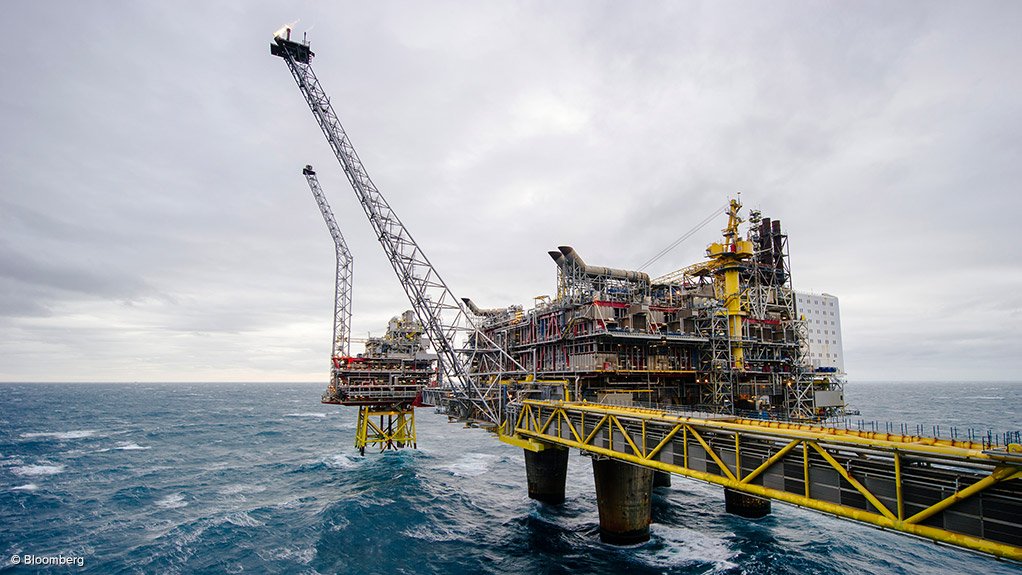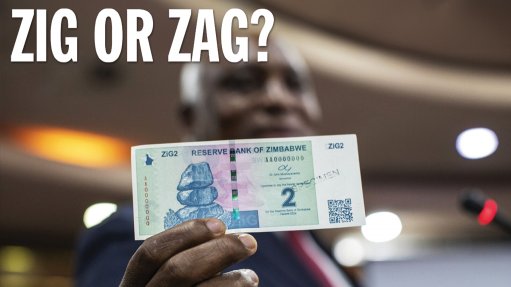East Africa holds next major oil and gas opportunities – PwC
East Africa would be the next major oil and gas play on the continent, professional services firm PwC Africa Oil & Gas Advisory senior manager Derek Boulware said on Wednesday.
Speaking at the launch of the firm’s 2014 Africa oil and gas review titled ‘On the brink of a boom’, he noted that, while about 15 000 wells had been drilled in West Africa to date, only about 500 had been drilled in East Africa.
“There is a lot of room for growth in East Africa,” he said.
Boulware added, however, that he did not believe East Africa would see the same levels of growth and activity as that seen in West Africa, as oil companies have essentially “buttoned down their capital spending” and their attention was much more focused.
“So while we may not have the same number of wells, I think the wells that we do have will be more successful, and overall success rates will be quite high,” he stated, noting that there was definitely still an opportunity to gain a first-mover advantage in the East African oil and gas space.
Further, he pointed out that, through the establishment of liquefied natural gas (LNG) trains, East Africa was also poised to become a major supplier to the global gas market.
“[However], that is also a big question mark because, as we continue to have delays in regulatory finalisation and policies, we are actually potentially missing the most opportune time to sell into these markets.
“Australia, as well as Papua New Guinea, have been able to bring LNG online faster than expected and both of those are players that are selling into the Asian markets. So, if the likes of Mozambique and Tanzania continue to delay some of the regulatory approvals, then perhaps they are not going to be attaining the gas prices they perhaps could have had they been able to [start sooner],” Boulware stated.
PwC Africa Oil & Gas Advisory leader Chris Bredenhann said there was a significant market for oil and gas in Asia, despite China’s efforts to bring its own oil and shale gas reserves on line.
“Given the size of [its] economy, there will still be a market for East African gas as well,” he explained.
However, Bredenhann reiterated that Africa’s success in this regard would depend on the continent’s ability to contain costs and get the product to market speedily.
Further, while the PwC report showed that access to funding was still one of the top six constraints to development in the oil and gas sector, there were reports of more funds being available for development in Africa, he pointed out.
He also noted that oil and gas project bidding rounds were becoming increasingly competitive as national oil companies increased their participation and trading companies continued to enter the market.
Bredenhann stated that confidence in Africa was high at the moment, adding that increased investment could be expected during the second half of this year.
CHALLENGES
In line with the firm’s previous oil and gas report, released in 2013, uncertain regulatory frameworks were still the main constraint to development identified by respondents.
Bredenhann pointed out that, in South Africa, uncertainty around the Mineral and Petroleum Resources Development Act (MPRDA) was a challenge; however, regulatory uncertainty was not unique to South Africa.
He also stated that Mineral Resources Minister Ngoako Ramatlhodi’s statements that some aspects of the MPRDA would be reconsidered was a positive development.
Meanwhile, corruption and ethics followed regulatory uncertainty as the second most significant constraint to development, the PwC report showed.
Bredenhann said that, while it was found that 91% of companies surveyed had antifraud or anticorruption programmes, only 54% of these companies saw their programmes as “very effective”.
In line with the findings of the 2012 survey, 6% of companies saw their fraud and corruption prevention programmes as ineffective.
Other challenges included poor physical infrastructure and supply chain constraints, lack of skills and resources and taxation requirements.
Safety, health, environment and quality-related factors would also be important going forward, having been identified as the most significant factor expected to affect business over the next three years, Bredenhann said.
Comments
Press Office
Announcements
What's On
Subscribe to improve your user experience...
Option 1 (equivalent of R125 a month):
Receive a weekly copy of Creamer Media's Engineering News & Mining Weekly magazine
(print copy for those in South Africa and e-magazine for those outside of South Africa)
Receive daily email newsletters
Access to full search results
Access archive of magazine back copies
Access to Projects in Progress
Access to ONE Research Report of your choice in PDF format
Option 2 (equivalent of R375 a month):
All benefits from Option 1
PLUS
Access to Creamer Media's Research Channel Africa for ALL Research Reports, in PDF format, on various industrial and mining sectors
including Electricity; Water; Energy Transition; Hydrogen; Roads, Rail and Ports; Coal; Gold; Platinum; Battery Metals; etc.
Already a subscriber?
Forgotten your password?
Receive weekly copy of Creamer Media's Engineering News & Mining Weekly magazine (print copy for those in South Africa and e-magazine for those outside of South Africa)
➕
Recieve daily email newsletters
➕
Access to full search results
➕
Access archive of magazine back copies
➕
Access to Projects in Progress
➕
Access to ONE Research Report of your choice in PDF format
RESEARCH CHANNEL AFRICA
R4500 (equivalent of R375 a month)
SUBSCRIBEAll benefits from Option 1
➕
Access to Creamer Media's Research Channel Africa for ALL Research Reports on various industrial and mining sectors, in PDF format, including on:
Electricity
➕
Water
➕
Energy Transition
➕
Hydrogen
➕
Roads, Rail and Ports
➕
Coal
➕
Gold
➕
Platinum
➕
Battery Metals
➕
etc.
Receive all benefits from Option 1 or Option 2 delivered to numerous people at your company
➕
Multiple User names and Passwords for simultaneous log-ins
➕
Intranet integration access to all in your organisation




















